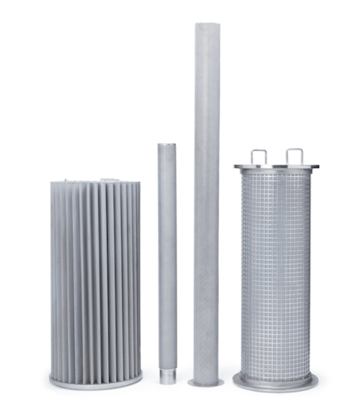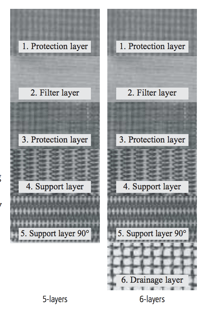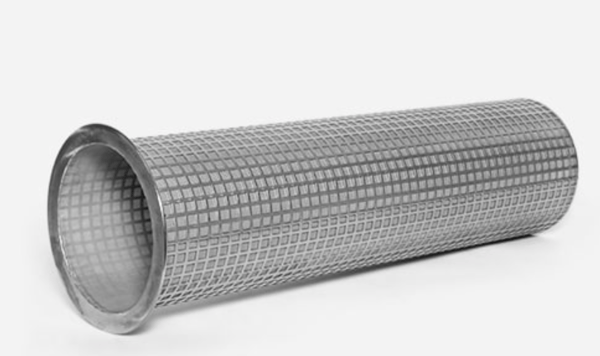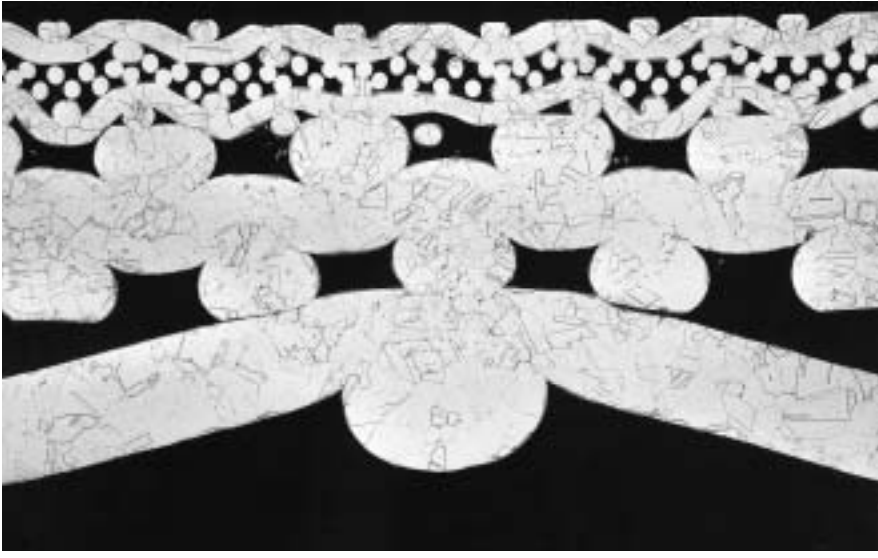What Are Sintered Porous Stainless Steel Filters (Porostar)?
There are all kinds of woven wire mesh types out there. There are different opening sizes, weave patterns, and even alloys that can be used to establish different weave structures. Each of those factors impacts how the wire mesh functions, what filtration level it operates at and which industry or function it's best suited for.
Using wire mesh for filtration purposes is one of the most intricate and technical uses we see with our customers. Each individual opening in the mesh is important, as well as the durability of the mesh as a whole.
When using woven wire to filter liquids, your opening size may be minuscule and even invisible to the naked eye. This means the material itself is very flexible and delicate.
In order to use a material like this in a system where high pressure is involved, you would need to have some type of protective layer(s) added to your filter.
This is where Porostar comes in. Porostar can ensure that your filtration layer is secure and accurate while still being able to withstand all kinds of conditions like high-pressure, harsh environments, or even welding.
In this article, we are going to talk about what Porostar is, who is is best suited for and how much it can cost you.
What is Porostar?
Porostar is W.S.Tyler's line of sintered porous stainless steel filters. It is multiple layers of woven wire filter mesh sinter bonded together to create a more stable filter plate with predetermined filtration properties.
The original opening size of the mesh remains the same even after the diffusion process.
Porostar can be purchased in sheets for your own use or it can be purchased as a customized filter. Buying in sheets can be a risky option if you plan to manipulate or form the Porostar yourself. There is a high risk of damaging the openings if not done correctly.
Typically, a customer would supply their own drawings for their filter element and our engineering team will work with them to find the best solution for their application.
Porostar can be created in a filter range of 1 - 1000 micron.
Below is an image of some capabilities for customizations that can be done with Porostar, but again this is very specific to your individual process.

If you are looking for more information on all the things we can do with woven wire you can check out our Value Added Services page to get all the details.
How Does Porostar Work?
Porostar is typically produced in 3-6 layers. Each layer outside of the main “Filtration” layer is used for a significant purpose: protection, support for the system, or as a drainage layer.
The most impressive thing about Porostar is the welding/sintering process that is used to combine each layer of mesh. This process seamlessly diffuses all wires together but does not alter or destroy the filtration characteristics of each individual layer.

1. Protection Layer: Protection of the filter layer against physical influences
2. Filter Layer: Selected according to the pore size
3. Protection Layer: Protects the filtration layer from possible deformation under high pressure
4. Support layer: Makes wire cloth laminate stable and improves the welding characteristics
5. Support layer 90: Makes wire cloth laminate stable and improves the welding characteristics
6. Drainage layer: improves the quantity of the filter capacity
How Much Does Porostar Cost?
As with any wire mesh product, there are a lot of factors that go into the cost.
If you are buying material alone your cost will be less then if you are buying the material formed as a customized filter of some kind.
When buying strictly material, you can expect to pay around $75/sq. foot.

For the cost of Porostar as a fully manufactured filter, Lets look at a specific example:
In the picture above, this filter is built specifically for a harsh environment where the filter will be under a lot of pressure. This particular filter is 3 layers plus a protective perforated plate outside layer.
The 3 different layers of the wire mesh first have to be bonded together. Next, the new material was rolled into this cylindrical shape and seam welded.
Then, the support layer (the perforated plate) is used as a protective layer and is installed on the outside of the filter. Finally, the end rings are then installed on either end of the filter.
In the case of this filter, you could expect to pay around $1,000. Typically we aren’t producing these types of filters on a large scale (100 plus), so you have to keep in mind that they are labor intense.
To Sum It Up
Sintered porous stainless steel filters, such as W.S. Tyler's Porostar filter mesh, is a great solution for fluidizing purposes or filtration. It is durable enough to withstand all kinds of conditions yet precise enough to get you the exact level of separation you need in your system.
If you are looking for more information on woven wire options or costs, you can check out our Guide to Woven Wire Mesh for more detail.
If you have any questions about Porostar, or other meshes of ours, reach out to us and we’d be happy to work through them with you.
Want all the latest industry trends and innovations sent directly to your inbox? Subscribe to our monthly newsletters today.





